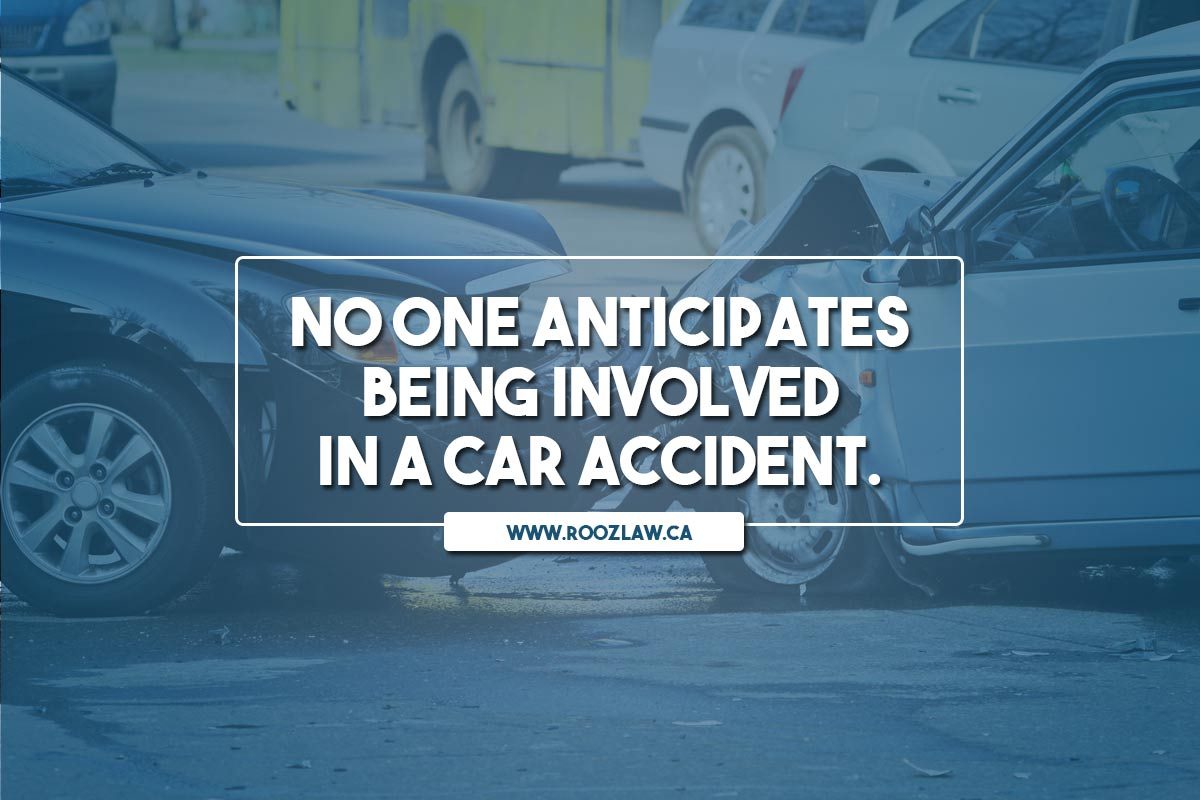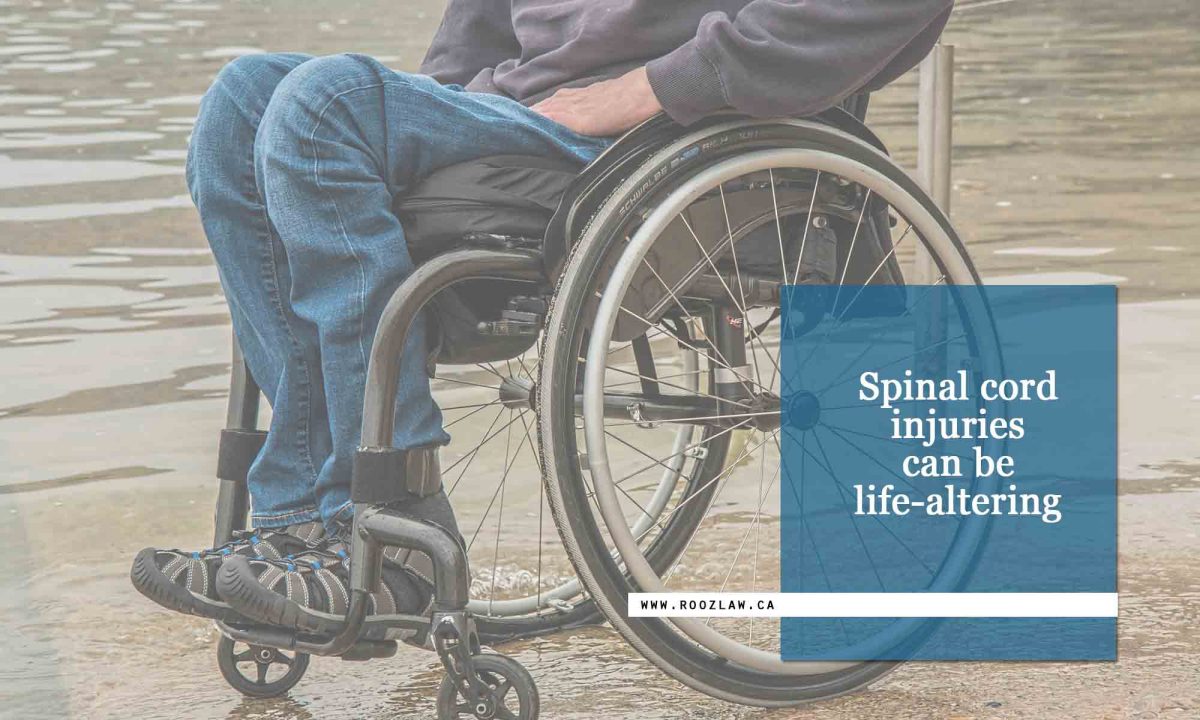Accidents can happen to anyone, and decisions made in the aftermath are critical and can affect your claims for compensation. When involved in a motor vehicle accident, here’s what to do:
Stay calm
Although often easier said than done, it’s important to remain calm. Keeping your cool will help you take better control of the situation. If you feel rattled, take a moment or two to compose yourself before making any decisions or confronting the other party.
Stay at the scene of the accident
If you’ve been in an accident, stop your car. Fleeing from the scene is an offence for which you may be charged.
Check yourself and your passengers for injuries
Check yourself for injuries. Are you feeling any sort of pain? Can you move all your limbs? Do you have any wounds or cuts? Ensure the safety of other passengers by asking them the same questions.
Get information from the other party
The first question to ask the other party is if everyone in his or her vehicle is unharmed. Once you have confirmed that no one is hurt, ask for the following important information:
- Driver’s license number
- Driver’s name and contact information
- License plate number
- Name of their car insurance company and policy number
For the above, it is best if you secure copies of documents confirming the above. When safe to do so, use your smart phone to take pictures of the other driver’s documents, licence, insurance slip, plate number. Ideally, you should also take pictures of the scene and damage to all vehicles.
Move the vehicles to the side of the road
When permissible and if possible, move the vehicles to the side of the road so you do not obstruct the way for others. Turn on the hazard lights or use cones or warning triangles to alert other drivers.

When to Report an Accident
The general rule is that any incident that results in injuries or damages with a combined estimated cost of more than $2,000 must be reported. Other situations in which you are required to report an accident (even if there is no damage or injury) are:
- When one or more of the vehicles involved is a government vehicle.
- If the accident results from a criminal act (such as driving under the influence).
- When there is any property damage, whether private or municipal.
- When any of the drivers involved do not have car insurance.
- When the accident involves a pedestrian.
Report any accident within 24 hours, even if you do not want to file an insurance claim. Failing to report an accident that exceeds the $2,000 threshold is an offence (e.g. leaving the scene). Penalties for conviction of this offence include:
- A fine ranging from $400 to $2,000
- Possible jail time (depending on the severity of the accident)
- Suspension of driver’s license for up to two years
If 24 hours have passed and you have not yet reported it, immediately call a local accident reporting centre.
Reporting the Accident to Your Insurance Company
Many drivers mistakenly believe that it’s unnecessary to report an accident to their insurance company if they do not plan to file a claim (especially if the damage is minimal). However, most insurance policies require that all accidents must be reported, regardless of the extent of the damage.
Your insurance company may need the following:
- Information about your insurance policy
- The year, make, and model of the cars involved
- Details about the accident (date, time, location, etc.)
- The other driver’s information (name, address, insurance company, etc.)
- The name and badge number of the investigating officer
Contrary to popular belief, reporting an accident to the police will not necessarily affect your insurance company’s assessment; the insurer will independently determine who is at fault and whether or not your policy rate will increase, based on fault determination rules, a set of rules legislated specifically for this purpose
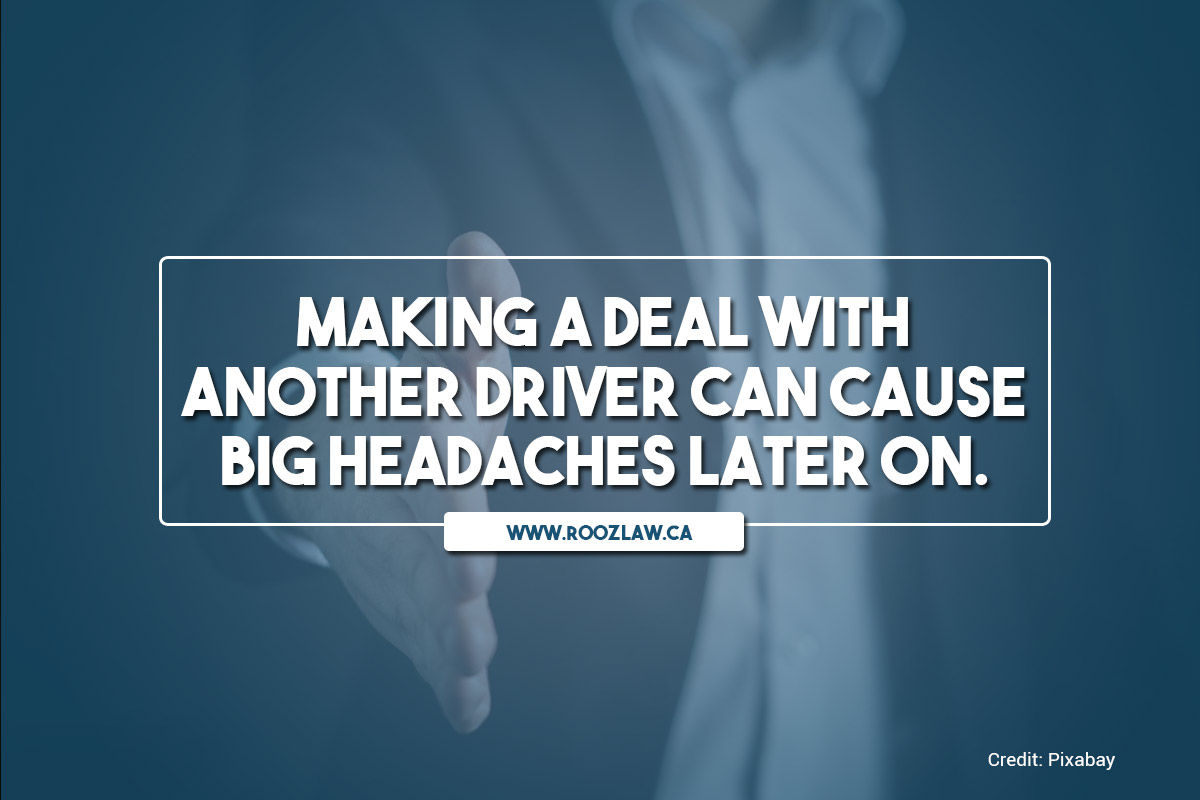
Risks of Not Reporting an Accident
In cases with no injuries and little damage, it can be tempting to strike a deal with the other driver and skip the whole process. After all, many do not want to risk increased insurance rates. However, failing to notify the authorities and your insurance company runs many risks, including:
The other driver might not hold up their end of the agreement, resulting in you to getting charged or suffering adverse consequences with your insurance company.
Injuries can arise after the accident and you might be responsible for any medical expenses if you do not make an insurance claim.
The other driver may change their mind and report the accident to their insurance company. If they do, your insurance company will be notified and your policy might be cancelled or affected. Failure to report to an insurer despite a requirement to do so may affect the insurance rates you face on renewal.
The other driver might decide to report the accident to the police and you could be charged with leaving the scene or failing to report it.
The damage might be worth more than $2,000, entitling you to more compensation than you received.
The other driver might take advantage of or con you.
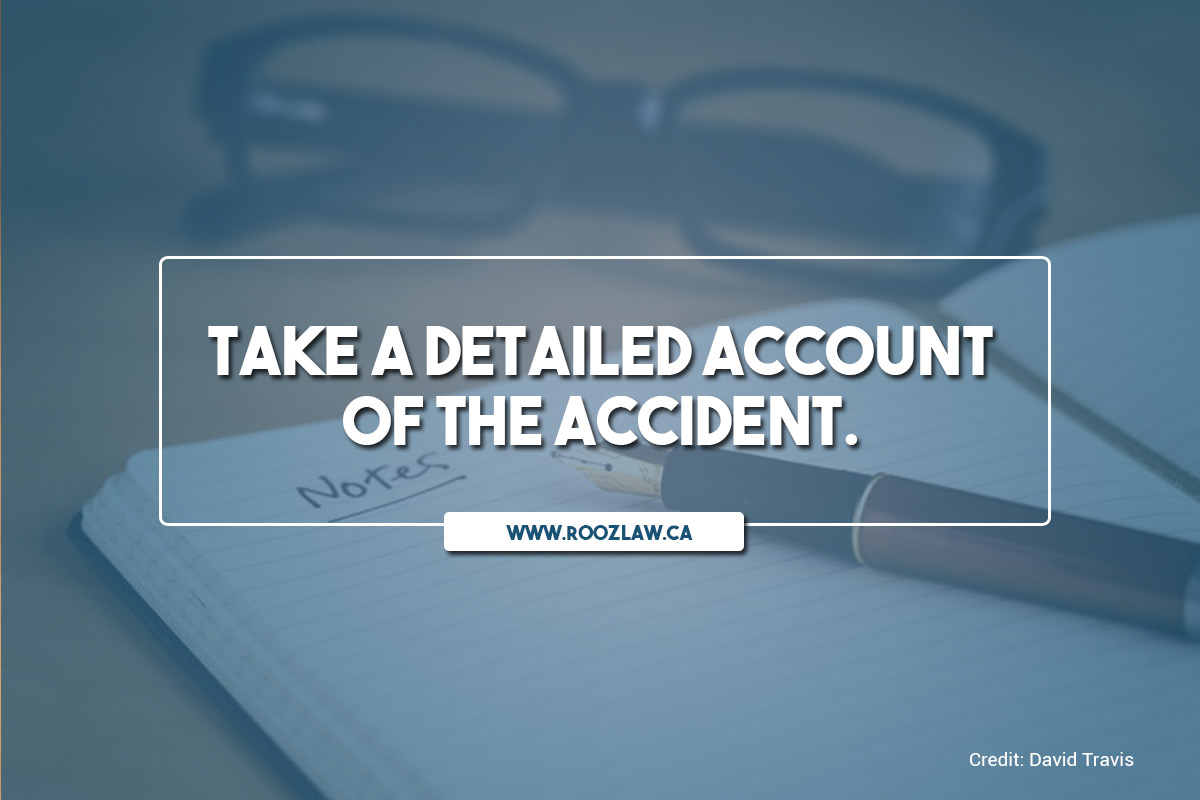
Recording Information After an Accident
In addition to reporting the incident to the police and insurance companies, take photos of the scene, the vehicles, and anyone involved. If possible, record your account of what happened on video, as well as those from the other party and any witnesses.
When describing the events, simply record what happened according to each person’s perspective. Take note of important details related to the incident, including the time and date, and weather and road conditions. Jot down pertinent information as soon as you can to keep your records as accurate as possible.
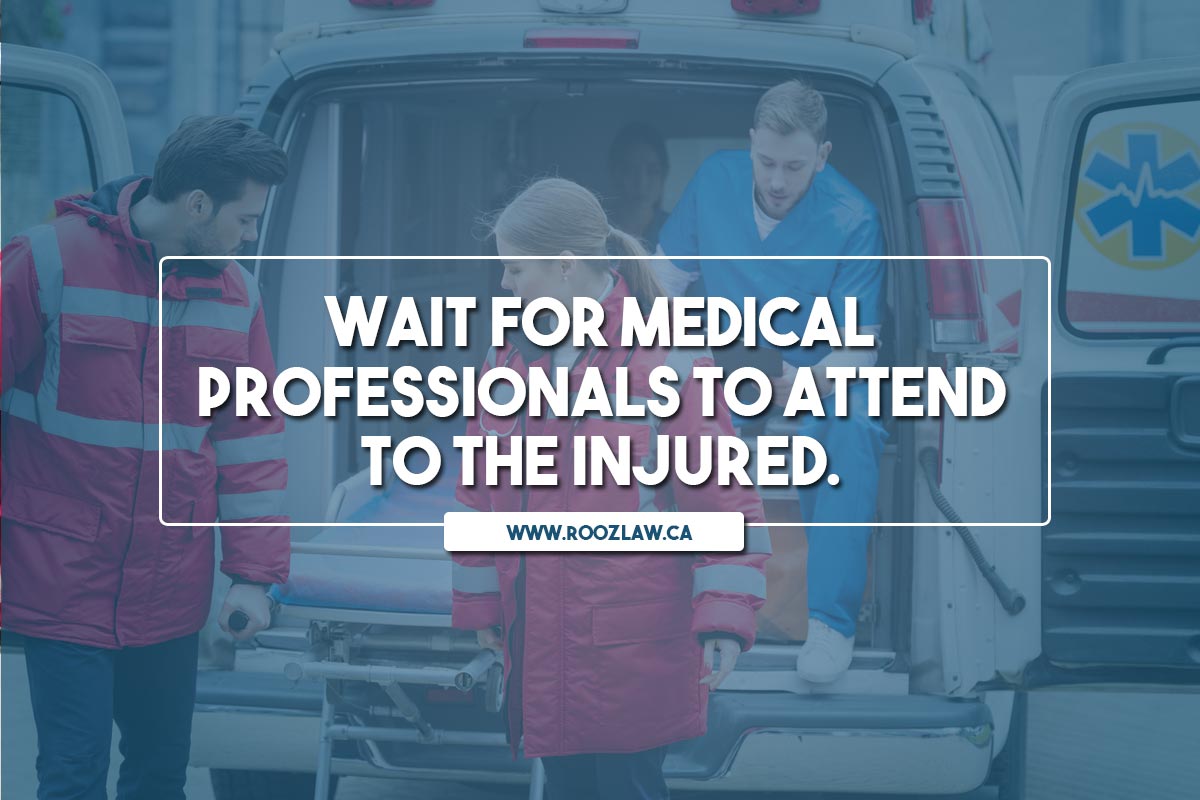
What to Do When Someone Is Injured
If the accident caused any sort of injury to anyone, do not attempt to move the person. Immediately call 911 and (unless you’re trained in first aid or are a medical professional), wait for help to arrive. If you need immediate medical care, keep receipts for all expenses incurred for reimbursement.
If you or your family members sustain serious physical or psychological injuries, you may be able to sue the driver at fault and claim compensation for the following:
- Income loss
- Medical treatment
- Rehabilitation expenses
- Pain and suffering
- Psychological trauma
- Housekeeping services
- Loss of care, guidance, and companionship (for family members)
All persons involved in car accidents in Ontario are entitled to Accident Benefits regardless of fault. If you or a loved one were involved in a car accident, entitlement for anyone, including an at fault driver, may include:
- Income Replacement Benefits
- Attendant Care expenses
- Medical benefits
- Rehabilitation benefits
- Lost educational expenses
- Medical Assessments
- Many other expenses, including prescription glasses, clothing, funeral expenses, etc.
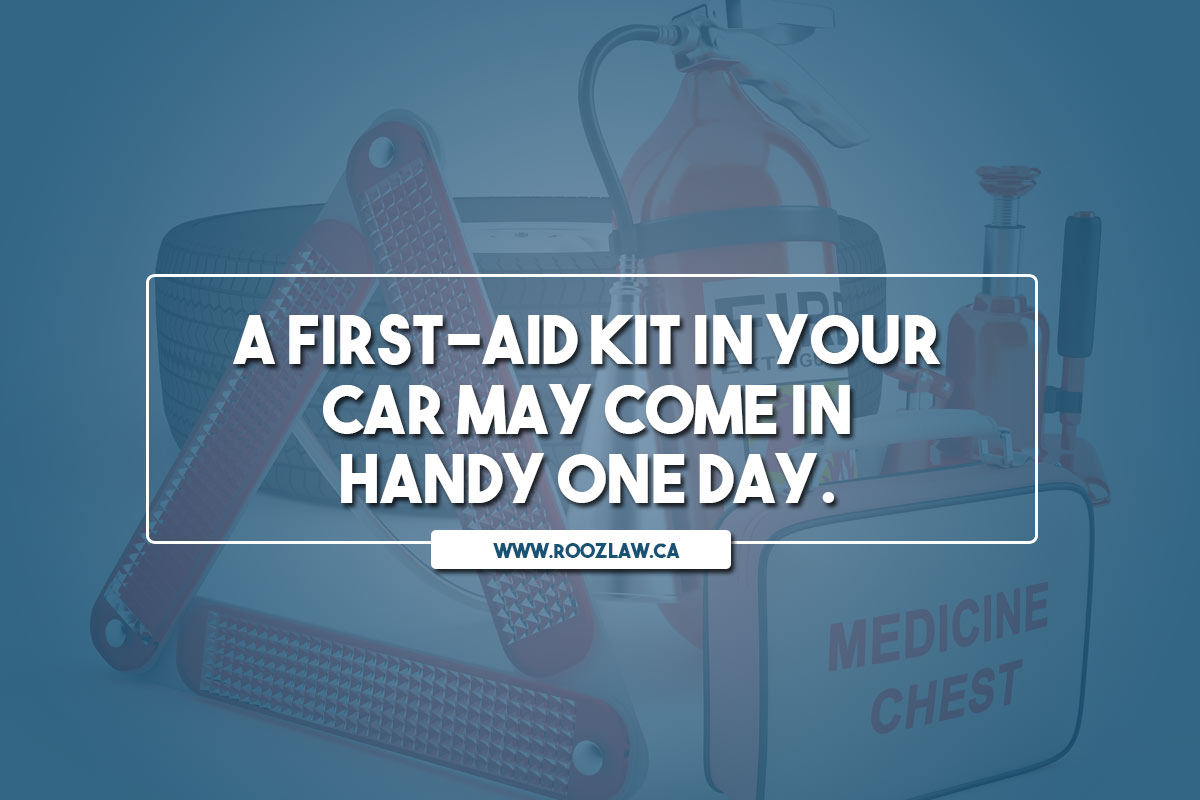
How to Be Prepared for Accidents
No one anticipates being involved in a car accident. If you find yourself in this situation, it pays to be prepared. Keep an emergency pack in your car that contains the following:
- Clean towel and thermal blanket
- Fire extinguisher, warning triangles, and flares
- Basic tool kit (flashlights, extra batteries, fully-charged power bank)
- Extra set of clothes
- Bottled water and non-perishable food
- First-aid kit (bandages, antiseptic, gauze pads, etc.)
- Extra pair of prescription glasses
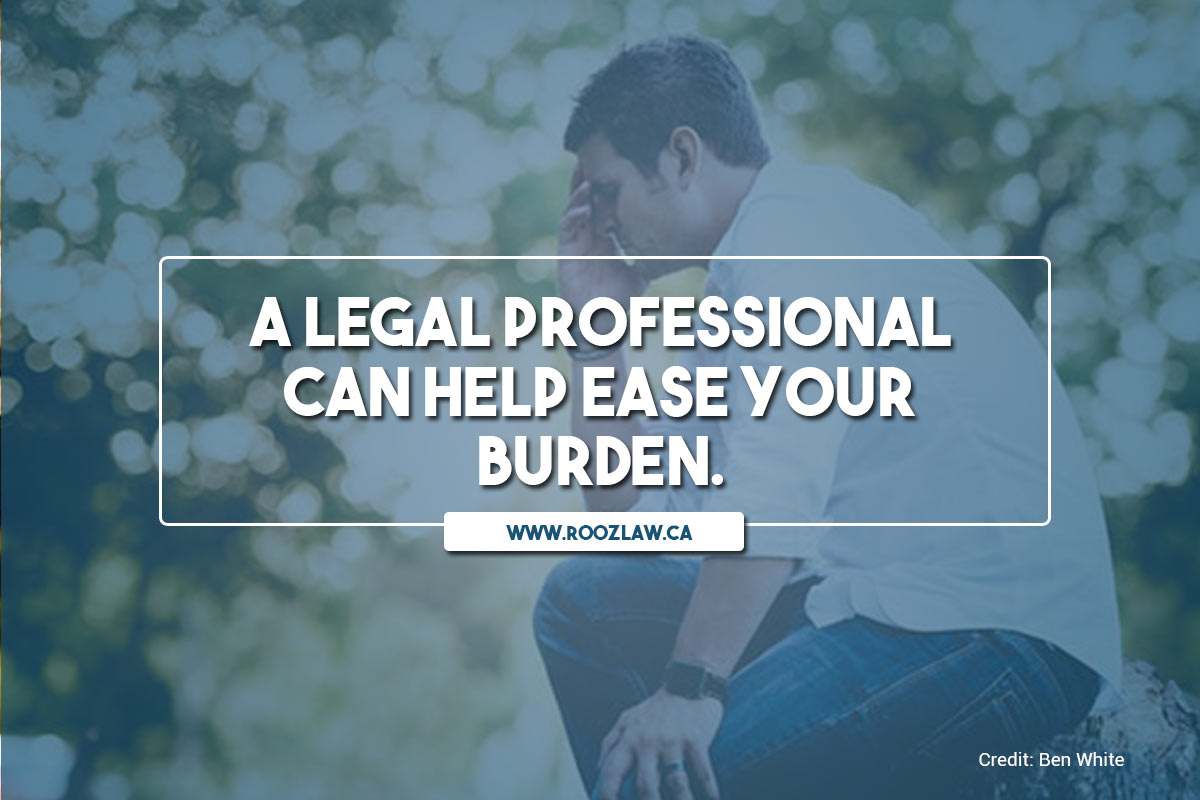
Car accidents are stressful, and dealing with the authorities and insurance companies can be overwhelming. If you are looking for assistance in making a claim, filing paperwork, or if you have questions about the process, call a legal professional.
For an accident lawyer in North York, call Rooz Law at (416) 229-6000. Our dedicated team of personal injury lawyers will fight to make sure you get the compensation you deserve.
